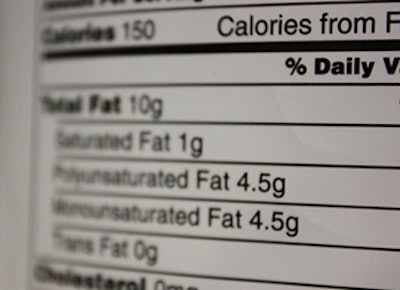
In recent years, there have been hundreds of often preposterous consumer class action lawsuits that frequently target both food producers and sellers across the country. California was home to one of the most ridiculous of those suits, which sought millions from a potato chip maker because its truthful front-of-the-bag label declaring “0 grams Trans Fat” could allegedly mislead consumers about the healthfulness of the chips inside, even though federally mandated nutrition labeling on the back offered full disclosure.
Though some nutrition activists embrace such speculative, no-injury litigation as a means to raise prices and reduce sales of snack foods, most consumers do not. And prices for products and services all across the retail spectrum can be similarly affected by runaway litigation, which is why some state policymakers truly concerned with consumers’ welfare have begun to rethink their respective consumer protection acts (CPAs).
Most state CPAs trace their origins to the 1960s and 1970s. But since then, many have been so distorted that they’ve come to be used to promulgate lawsuits such as the California snack chips suit.
In her recently published white paper, Joanna Shepherd-Bailey, an associate professor at Emory University School of Law, demonstrates that a steady “devolution” of state CPAs since the 1980s – from laws enforced primarily by state attorneys general seeking injunctive relief in the public interest to laws that now allow and thus encourage private litigation in pursuit of significant awards for damages and attorney’s fees – have come to hurt consumers as much or more than they protect them.
Shepherd-Bailey’s paper, “Consumer Protection Acts or Consumer Litigation Acts?” begins with the origins of the Federal Trade Commission (FTC) Act 100 hundred years ago when “Congress first sought to define and deter” a “new class of consumer harms” that arose as “the merchant-consumer relationship” evolved rapidly, along with myriad new products and services, new retail models, and new credit-based payment systems. “Unfair and deceptive acts or practices in or affecting commerce” were prohibited by the broadly worded new law.
But recognizing the potential for litigious mischief, Congress purposely limited enforcement of the law to its newly created FTC, prohibiting private lawsuits else “a certain class of lawyers . . . will arise to ply the vocation of hunting up and working of such suits,” the number of which “no man can estimate,” warned Sen. William J. Stone (D-MO) prior to passage of the act in 1914. This prohibition recognized that consumers could be harmed not only by unfair and deceptive trade practices, but by over-prosecution of marginal or specious claims.
Fast forward 50 years and a growing number of states were no longer willing to leave consumer protection entirely to the federal government. Eventually all 50 states and the District of Columbia adopted their own CPAs modeled in large measure on the FTC Act, including prohibitions against private lawsuits as a means of enforcement. State attorneys general were authorized to provide enforcement.
By the 1980s, however, just as the FTC’s economics-based analyses of unfairness and deception led to substantial and sensible limits on federal enforcement actions, many state CPAs had begun an expansion, both through legislative amendments and judicial interpretations, far beyond their original scope. Private rights of action were widely embraced. Plaintiffs no longer had to prove an injury, demonstrate that they had relied on a merchant’s allegedly deceptive representations, or had even behaved reasonably in order to prevail in lawsuits. (What reasonable person would read a “0 grams Trans Fat” label and conclude that potato chips are a health food?)
Whereas CPAs once appropriately limited themselves to regulating real consumers’ direct relationships with merchants, too many today enable utterly ridiculous lawsuits by citizens with no relationship to a merchant over literally hypothetical misunderstandings.
When the American Tort Reform Association (ATRA) kicked off a multistate, consumer protection reform campaign in Washington earlier this year, FTC Commissioner Joshua Wright reported an analysis of state consumer protection claims that found 78 percent to be “meritless” relative to FTC precedent. He added that the FTC does rigorous cost-benefit analyses of consumer protections and is most willing to share those analyses with state authorities interested in pursuing appropriate reforms.
Where state laws are written so broadly as to invite meritless lawsuits, driven largely by self-interested plaintiffs’ lawyers rather than the genuine interests of consumers, state legislators can and should act. Proper CPAs, utilized in much the same way as the original FTC Act, can lead to a more enlightened and mutually beneficial balance between consumers and merchants. Effective reforms will assure that the law works primarily for consumers instead of “a certain class of lawyers.”
About
Tiger Joyce is president of the American Tort Reform Association, based in Washington, D.C.



















